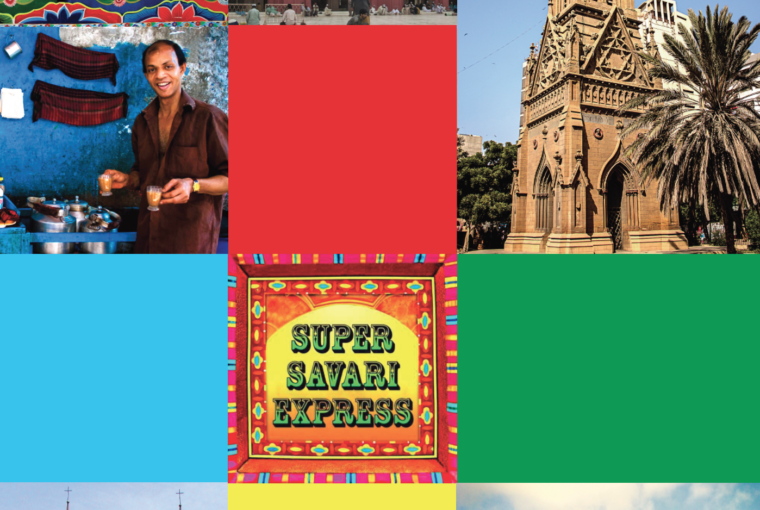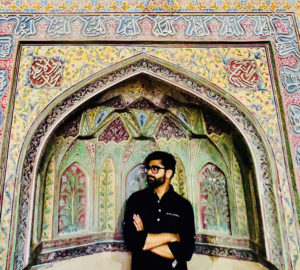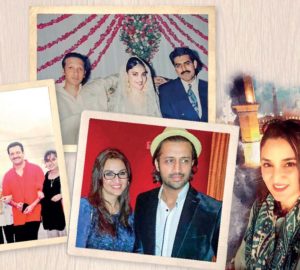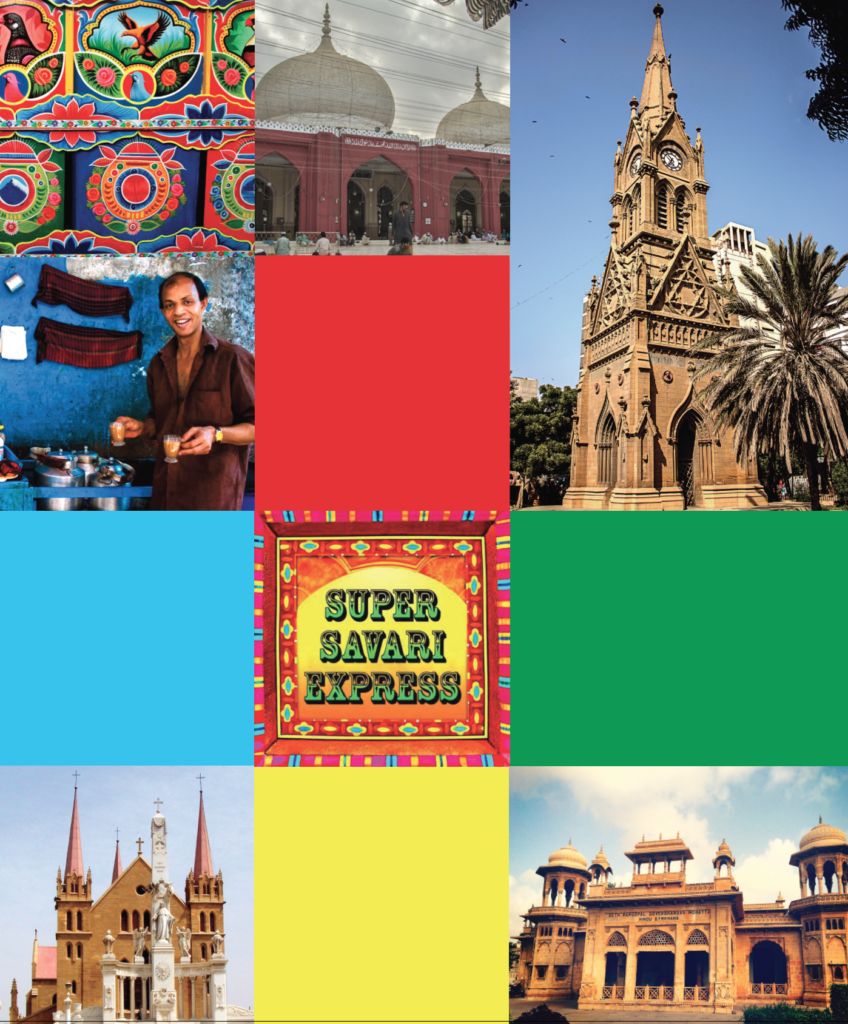
I trundled along on the bumpy, hard roof of a pink, green and gray public bus boasting the grand honorific of ‘Prince Baboo’. It was a novelty that I, a mere woman, was sitting proudly and unapologetically on a space exclusively reserved for male passengers in their daily commute. But this was not an ordinary workday and I was not bringing about a gender revolution. No, today was Sunday and I was one of an entourage partaking in the Super Savari Express tour of Karachi. So I climbed up the ladder at the back of the bus and stationed myself, a grinning Buddha wearing a dupatta, right in front, to get the best view of a city I had lived in for twenty years, but which I was determined to see with new eyes today. Terry Pratchett once proclaimed that ‘tourist’ was another word for ‘idiot’. I would gladly embrace idiocy if it meant shutting off my Karachiite mind as to the politics, the voyeurism and the privilege this tour entailed.
So as we hurtled down Elphinstone Street amid the derelict and once-grand buildings of Saddar, pock-marked by billboards and flashy signs that stood in stark contrast to each other, I didn’t care about architectural synchronicity. I dutifully oohed and aahed when shown a grime-covered building with Corinthian pillars and broken windows that used to be the Freemasons’ lodge. I willed my novelist brain to imagine old gentlemen congregating in secret midnight meetings in humid summer nights, with curious dress code and secret passwords, deciding the fate of the world. I surrendered to the melancholia of the place as we left it behind – a romantic piece of history appropriated by martial law.
The sky was a grayish pink as we viewed the stunted cityscape. It struck me that old Karachi was a place of domes and minarets. They weren’t imposing, but ever present; the ivory dome of the Supreme Court and the elegant minarets of the Hindu gymkhana being especially pretty. I began to watch out for them – rising proudly to the sky, above the trellised mess of electricity wires and hotchpotch of broken wood-work and windows underneath. I purposefully blocked out any clichéd metaphor of them trying to disassociate themselves with our socio-political mess – NO, that was what a Karachi resident would think – I was the idiot tourist, stubbornly sifting the gladness from the gloom.
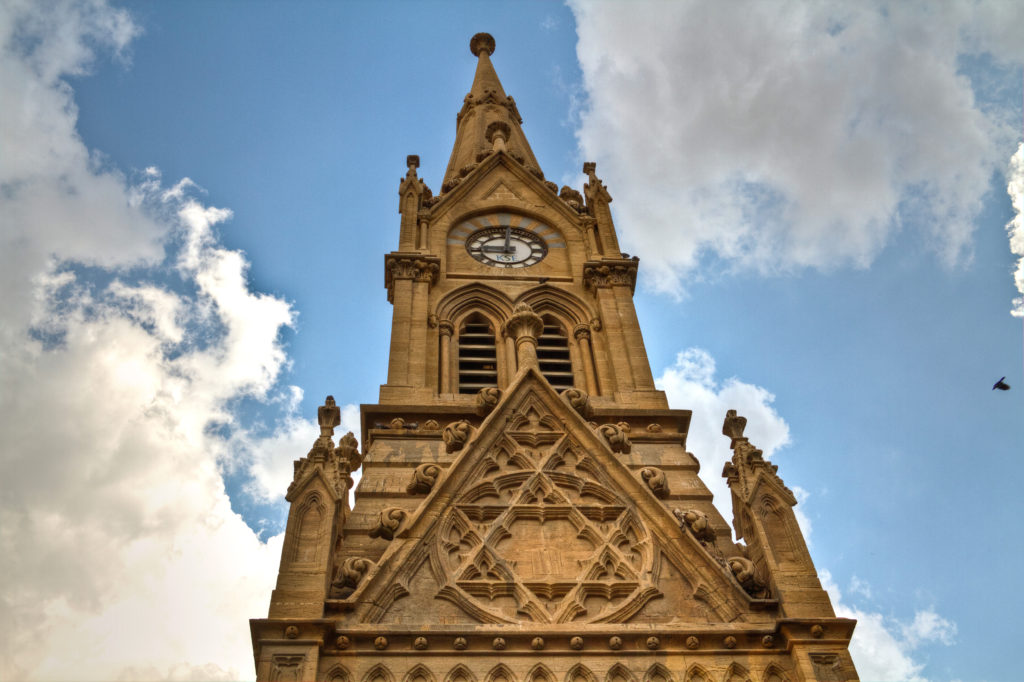
“The Dhaabaa experience, you see, is about the opposite. The mess..The lack of timing. The delightful surprise when flavours explode in your mouth when you least expect them to.”
So it was with great alacrity that I allowed myself to be off-loaded for breakfast at an authentic Saddar dhaaba. My family and I were herded into one which served crispy hot parathas and soft omelets fragrant with red chilies and coriander. I turned around to a fellow traveller who was not nearly as enthused as me. He proclaimed that this was too sanitized an eating place to be authentic. No, there was another dhaaba, on the road, near Bundu Khan, that served the most delicious halwa puri. He leaned back and crossed his arms, gazing in general disapproval at the orderliness of the meal – the promptness of it.
‘The dhaabaa experience, you see, is about the opposite,’ he lisped. ‘The mess. The lack of timing. The delightful surprise when flavors explode in your mouth when you least expect them to.’ Since I had just bitten a green chili and all sorts of implosions were ringing off in my brain, I ignored his complaining. He wasn’t in the mood to play tourist, and that was his problem.
I finished my meal with gusto and drank about two liters of cold water to douse the fire on my tongue and strolled out amidst the Pathan vendors, squatting beside orange and green gas cylinders that were to fuel their mobile stalls – slurping tea and assessing us with their kohl-rimmed eyes. Many had placed their fruit on the road, right in the gutter water.
All of a sudden I chanced upon a small little hovel of a shop proclaimed itself as ‘Tid Bits Books Stall’. My heart soared: Tid Bits’s stalls in Sunday bazaar had been my mecca while growing up – I made my weekly pilgrimage to buy at least 20 second hand books a week. My identity and literary tastes had been determined by this bookseller – who had lounged arrogantly on a pile of old magazines and magnanimously slashed his prices for eager and poor bookworms like me. I hurried inside to see at last the fountainhead of all that literary goodness expecting a quaint little shop full of treats and vintage books. Instead I saw the owner, my old friend Saleem Bhai, huddled behind a small counter, piled high with a mess of books. On the left was another broken column of fiction books, on the left, much of the same. Their covers were torn, the pages were missing. As I stood aghast, he recognized me instantly.
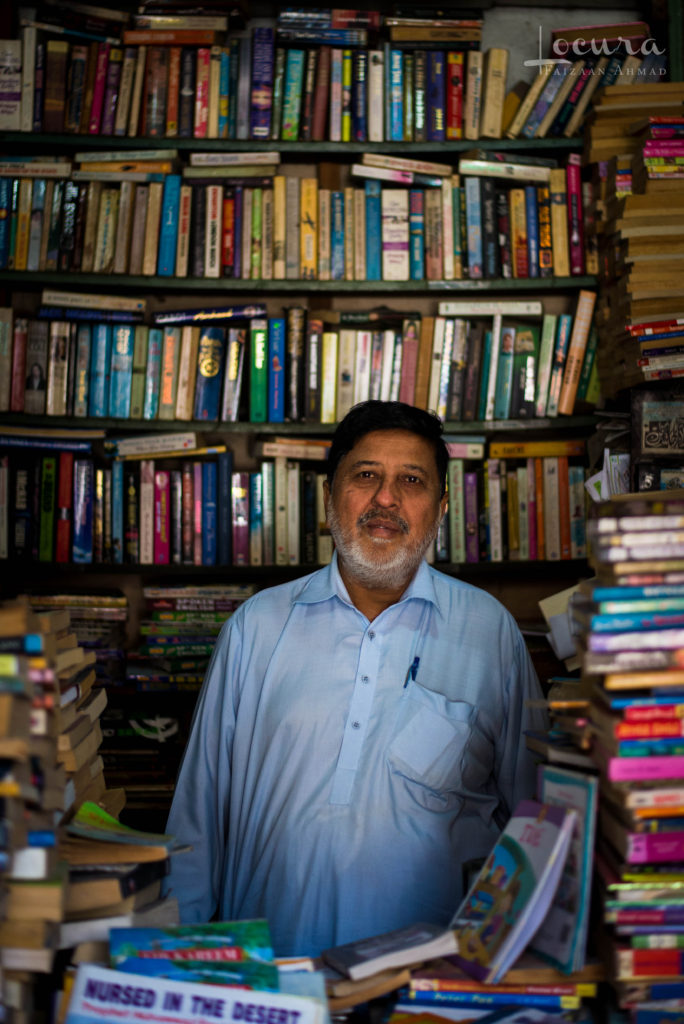
‘You were my best customer!’ he grinned. I was told to pick up a book. Any book. Totally phree.
But I wasn’t in the mood for commerce. ‘What happened?’ I asked? What became of the millions of books and the grand book fair Tid Bits boasted every Sunday? This place was a far cry from what it used to be in its heyday. Saleem Bhai shrugged, giving me a summary of being edged out by competition, driven back to this small room where two people could barely stand shoulder to shoulder. There was no electricity and no way to see what books were where – he didn’t have the time to organize them. After I picked and forcibly paid for an old book on the techniques of fly fishing (it was right on top and therefore easy to get a hand on) I slumped out, back to the bus, whose colors seemed garish and plastic flowers waving about on antenna wires seemed a mockery to the seriousness of the situation. I sat inside now, next to the driver, inhaling the fumes of the diesel engine. I could no longer force an enthusiasm that I didn’t feel.
I frowned through the 166 year old Shri Swaminarayan Temple where an old, tiny lady gave us all a compulsory but heartfelt hug. A peacock glared at us as we traversed its holy grounds – and some photographed the statues of Radha and Krishna as a bald priest began a plaintive bhajan. Feeling more and more like an intruder, I ran back to the bus and sat in desultory silence through the rest of the trip; a distant onlooker rather than an active participant. It was hard not to admire the gorgeous array of chandeliers and grand inner space of Taheri Mosque; nor was I able to resist waving at the grinning Zoroastrian priest right outside the stairs of the forbidden Parsi Dar-e-Meher as he read the morning newspaper. I sat quietly on the pews of St. Patrick’s Church and looked at the stained glass depictions of the Passion of Christ when a Catholic girl sat down next to me and ask me if I was visiting and I nodded. She proceeded to tell me about her life, how her parents fought and how she tried to commit suicide in college because it was all too much for her. She gave me her phone number and told me to give her a call. It was all too much for her, and for me too, it seemed. I was tired of this tour, of this city where everything seemed broken down. The afternoon sun was lashing down on us and all my optimism had evaporated.
We were taken to another crowded part of the city – I’d lost track of where. I hobbled off Baboo, growing less princely by the minute, barely noticing the archway when suddenly I came upon an unexpected expanse of marble space. There, in grand view, stood the New Memon Masjid, with its three voluptuous domes that puffed out like meringues against the blue sky. Flanked by grand and tapering minarets, it sapped my exhaustion away. I climbed up the stairs and saw the prayer spaces etched onto the glistening floor. The domed archways shone silver in the glare of light reflected off the marble. To my right, a large pool, cool, blue and calm, awaited the ablutions of the namazis. It cooled my eyes and soothed my soul and I was drawn to it. The tour guide told us that the mosque had been built on an old cemetery and, as they razed the old graves, two bodies had been discovered, fresh and intact, new as the day they had been interred. These had been re-buried under the cool shade beneath the pool – and very visible through a locked jaali, adorned by plastic-wrapped floral wreaths.
At last I had stumbled upon a gladness I didn’t think possible – into a folktale that was still whispered reverently through generations. Karachi, despite its grime and gloom, had pockets of magic for those in search. We think we know a place until it surprises us. I had given up on any hopes of pleasant discovery until I stumbled onto this divine mosque. I have held on to the story of the graves, to the splendor of the mosque and the quiet peace I found within, because an intriguing narrative had met with magnificent architecture. Here, at holy graves, I rediscovered my curiosity and wonder. I said a prayer and allowed myself to be pulled away, back to the head office, where a thank you and a farewell ended the six-hour day trip.
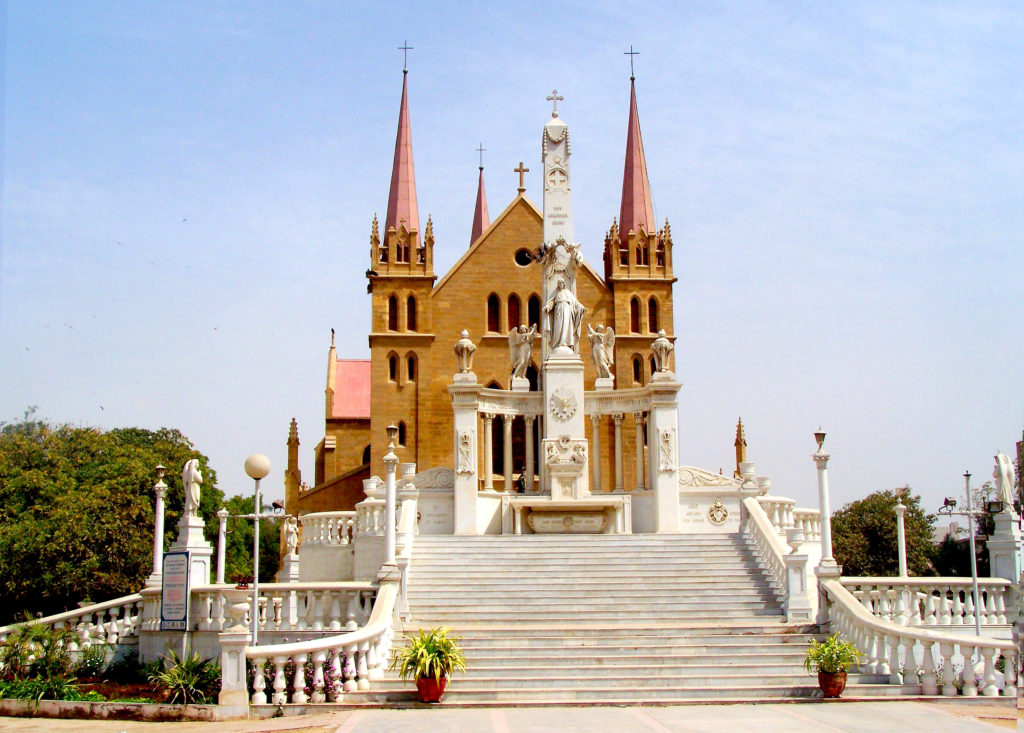
Going back to my house, I thought of T.S. Eliot’s words from ‘Little Gidding’: ‘We shall not cease from exploration, and the end of all our exploring will be to arrive where we started and know the place for the first time.’ My trip was like that – the idiot explorer turned cynic turned convert. I think I will remain forever, the idiot tourist, for the discovery, when it does come, is definitely worth it.


